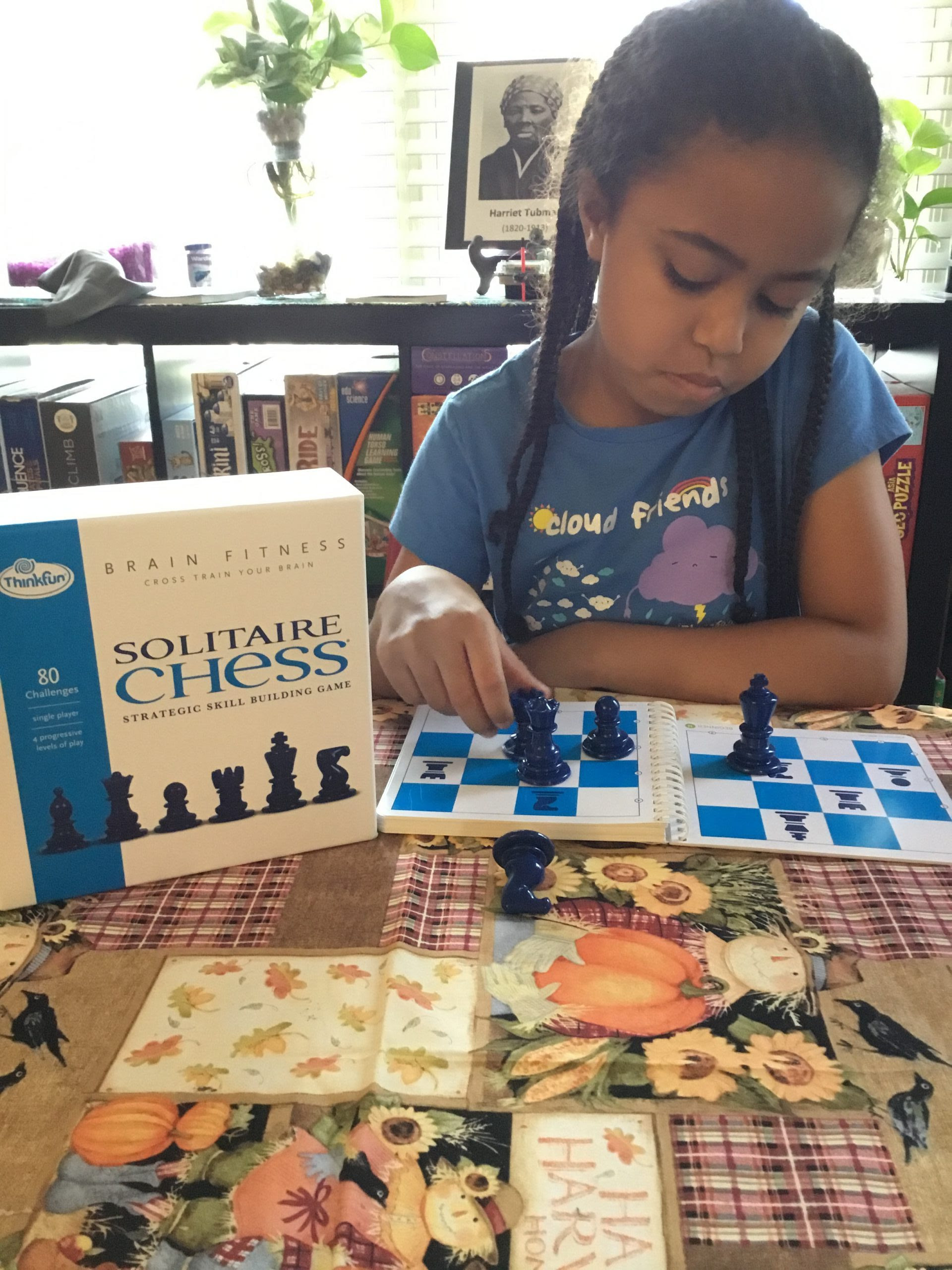
Tanya Butler grew up on the backroads of a small, predominantly white Pennsylvania town. Much of her time was spent at her grandparents’ home, playing games with her younger siblings and cousins. Nights filled with shuffling and double-dealing weren’t about winning or losing–they were about learning. Games taught Butler and her family members valuable lessons in reasoning, community, and self worth.
Thanks to them, she became a lifelong learner and lover of play.
When Butler and her spouse decided on homeschooling their children, it was clear that playing games would occupy a considerable part of the learning process.
The Butlers are amongst a growing number of self-reliant, Black homeschooling families. According to a 2016 National Center for Education Statistics survey, about 8 percent of the nearly 1.7 million homeschooled students are Black children–a number that has nearly doubled in the last 15 years. Especially for young Black scholars, receiving an education at home is a revolutionary act. It functions as a call to action for liberating Black students from systemic racism in addition to addressing the colonized cross-subject curricula that often misinforms or erases salient Black culture and history.
Butler chooses to homeschool her children to ensure their learning includes accurate, African-centered history and literature–studies that traditional school settings tend to bypass. She is also adamant about supporting her childrens’ sense of self worth.
Gameschooling is a teaching method that encourages children to navigate their world through play. “Gaming simultaneously opens up different portals in your brain to work together,” emphasizes Butler. Games also help to develop and amplify skills like: communication, reading comprehension, vocabulary, sharing, cooperation, focus, creativity, following directions, logic, critical thinking, problem solving, strategy, and planning.
Last week, Butler joined a panel of other homeschooling parents to discuss the basics of gameschooling and how games, in particular, are beneficial for Black children.
RELATED: Why Black children must see themselves in the classroom.
I can personally confirm the advantages of incorporating games into daily routines.
Like Butler’s youngest homeschooler, my five-year-old Tolani, has never been introduced to institutional learning. It hasn’t been without sacrifice, but I decided early on against the rigid nature of American schools.
So far, all parts of her early development have been introduced and fostered at home. She is a curious and inquisitive, free spirit–and I want her to stay this way.
Upon discussing educational philosophies with Butler and recognizing how often institutions fail to uplift Black students, I realized that we parents are the most capable of supporting our children without the distractions of a broken system.

My daughter Tolani is learning a lot through play. She began recognizing sight words as early as two and a half from playing the game, Zingo. And when Tolani took an early interest in cooking, she learned fractions by playing Fraction Action. I’ve seen her use this knowledge in the kitchen–reading and calculating measurements for basic recipes.
Matching games with units of study is what Butler recommends. Her 9 year-old enjoyed playing the quilting game, Patchwork, on a unit in which she studied Harriet Tubman. “Quilting is so deeply embedded in our Black culture. The patterns are significant because they gave directions for our ancestors escaping enslavement. It was transformative to see my daughter not only learning how to quilt, but learning about quilts in the context of being Black,” explains Butler.
“Whether your child is homeschooled or enrolled in a traditional classroom setting, bring games back into the home. Host a family game night because Black children–and adults–deserve joy, too,” emphasizes Butler.
What Tanya Butler seeks to accomplish with gameschooling is what all Black parents should strive towards for our children.
“Parents are the first teachers for their children. And we want our kids to enjoy learning. We want them to experience learning that is not based on conditioning, but encourage them to be individuals. Through games, we can boost the most natural parts of ourselves. It is resistance. It is freedom. It is true liberation.”
Gameschooling for the Culture:
Butler is very intentional about introducing games that originated in Africa as well as games that have been developed by Black creatives. Here are a few of her suggestions for parents looking to engage their children in educational games:
- Mancala: a game that originated in ancient Egypt, this is one of the oldest and most widely-played strategy games today. The basic premise of the two-player game is to continue “sowing seeds” with the mission of counting and capturing all of the opponent’s stones.
- Inspired by the real businesses of 1921 Tulsa, Oklahoma, Play Black Wall Street, is a game of history, economics, and a salute to Black-owned businesses.
- Created by a self-proclaimed, serial entrepreneur, The Entrepreneur Game, is a game that promotes startup education and investing, even at a young age.
- For younger children, Bevy and Dave, sells matching games and jigsaw puzzles.







